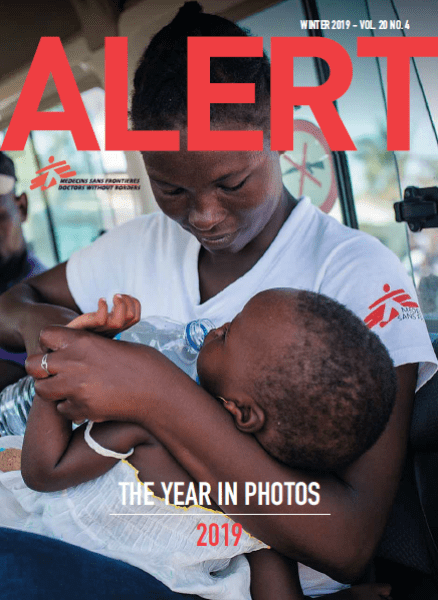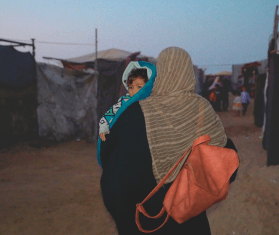There are now 70.8 million forcibly displaced people around the world, more than at any time in modern history. Some have been forced from home by conflict, others escaped gangs and criminal violence, still more have fled persecution. All face additional threats on their journey to find safety, including a lack of access to essential needs like clean water, food, shelter, personal security, and health care.
Doctors Without Borders/Médecins Sans Frontières (MSF) cares for refugees and displaced people all over the world. We see that the suffering of people on the move is compounded by their treatment while in transit and in countries where they had hoped to find refuge. Increasingly, governments are trying to keep out migrants and asylum seekers at all costs.

In Central America and along migration routes through Mexico our teams provide vital primary and mental health services to people fleeing extreme violence and poverty in Honduras, El Salvador, and Guatemala. We also care for thousands of asylum seekers and deportees stranded in notoriously dangerous cities on the Mexican border. And we speak out about the harmful policies—such as the US government’s Migrant Protection Protocols—that are putting lives at risk.

Every year, thousands of people fleeing threats to their lives at home attempt the treacherous journey across the Mediterranean Sea. Countless lives are lost along the way. In response, MSF runs search and rescue operations from the ship Ocean Viking in collaboration with the humanitarian organization SOS MEDITERRANEE. We also care for migrants and refugees held in horrific conditions in arbitrary detention in Libya, where many are sent as a result of European Union migration policies.
In Colombia, which now hosts more than a million people who fled the ongoing economic and political crisis in neighboring Venezuela, MSF provides free treatment for migrants who would otherwise have limited access to affordable health care. Our teams provide comprehensive care, including much-needed antenatal and family planning services.

And in Bangladesh, where more than 700,000 ethnic Rohingya refugees have been living in legal limbo in squalid conditions for more than two years after fleeing targeted violence in Myanmar, MSF teams provide full-spectrum health care, from neonatal services to treatment for mental health disorders to vaccination campaigns.

As the year draws to a close and the next begins, we’ll keep providing lifesaving medical care to displaced people all over the world, adapting our services to better treat people on the move and speaking out against government policies that put the most vulnerable at risk.





